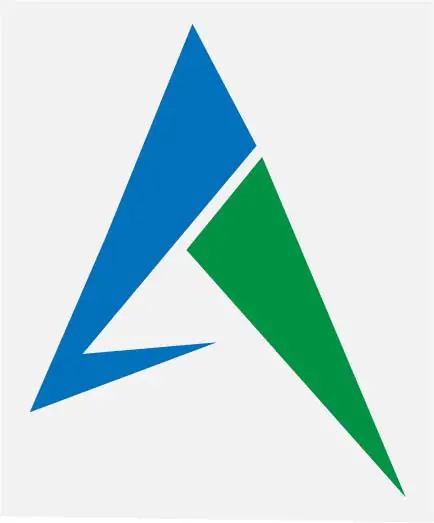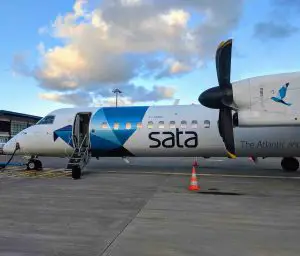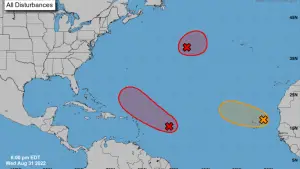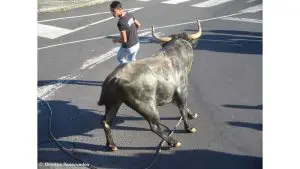Taxis become more expensive
More expensive taxis in the Azores to offset rising fuel prices.
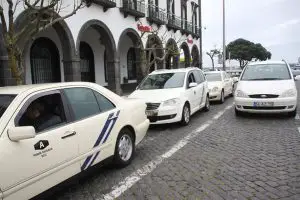
Correio dos Açores reports that the tariff to be charged for the activity of renting light passenger vehicles in the form of a driver (taxis) operating in the Autonomous Region of the Azores has increased by 20 cents for the first kilometre, with the tariff now being 3.60 euros, according to the table published in this edition.
The cost of kilometres travelled beyond the initial cost is 74 cents in the case of taxis with up to four passengers with a badge and standard colour and 94 cents in the case of cars with more than four passengers with a badge and standard colour.
In the case of vehicles without a badge and standard colour, the cost of the kilometre travelled beyond the initial cost is 90 cents for vehicles with up to four passengers and one euro for vehicles with more than four passengers.
The objective is for tariffs to follow the evolution of the sector’s operating costs. Taxi tariffs have not increased since January 2019.
Since 2019, the global economic and social situation “has changed significantly, having been severely affected by the effects of the Covid-19 pandemic and, more recently, by the conflict in Ukraine, occurrences of major proportions and with enormous repercussions on the world economy and, consequently, on the business economy”.
The decision takes into account that such occurrences worldwide “were reflected in the decrease in demand for the service and, on the other hand, by the significant increase in the costs of production factors associated with the sector, with special relevance to the successive escalation of the price of fuels and petroleum products”.
In this perspective, according to the Government of the Azores, “it is important to guarantee the sustainability of the taxi activity since it is an important public transport to guarantee the mobility of people”.
Fee supplements
In the kilometre service, some supplements can be applied: More 20 cents per minute of waiting; plus 2.50 euros for excess baggage and 50 cents more if the user made the call to the taxi centre.
In passenger cars in the rental system, it is mandatory to carry free luggage of users up to a weight of 30 kilograms, or that does not exceed the dimensions of 55x35x20 centimetres.
In the hourly service, 20 euros will be charged, with half an hour being 10 cents.
In the night service, between 21:00 and 6:00 and on Sundays and the injured, the rate is increased by 20%.
Thus, taxi transport services, in Letter “A” vehicles, are provided: depending on the distance travelled and waiting times; by the hour, when depending on the duration of the service; the route, depending on prices established for certain itineraries; a contract, based on a written agreement, established for a period not less than 30 days, which must include the respective period, the identification of the parties and the agreed price; And by the kilometre, when depending on the mileage to be covered.
To determine the cost of transport, the distance travelled or the start of the service per hour are always measured from the place or time at which the vehicle is available to the user and, “except for special conditions” of use that imply tariff supplements.
Three tariffs
There is a ‘Tariff 1’ which corresponds to the tariff with empty return in which the price of transport results from the sum of the ‘minimum charge’ (amount applicable to a user’s journey during the first kilometre or fraction thereof; plus the ‘cost of the kilometres travelled beyond the initial’; and ‘Waiting time’.
The ‘Fare 2’ is the fare with the user’s return, in which the user returns to the place where the service starts or uses part of the return circuit. the “Minimum charge”; the “Cost of kilometres travelled beyond the initial”: value obtained by multiplying the price value per kilometre or fraction, by half the number of kilometres travelled by the vehicle, not only when occupied but on the way back, minus 1 regarding the “minimum charge.
“If the user leaves before completing the return trip to the origin, the distance left to travel must be considered by the shortest route”. The “Waiting time” is also added to this rate in case the user wishes to stop the vehicle, reserving its use.
‘Fare 3’ is considered the hourly rate and “is only allowed for services provided for occasions of public performances, weddings, baptisms, funerals, or on excursion transport and in other special cases to be set by the municipal councils. Hourly service includes round-trip, waiting and return time.”
It is always free to transport a wheelchair or other means of walking for users with reduced mobility, as well as strollers and accessories for transporting children.
Also according to the same order, the transport of passengers in light vehicles, on a rental basis in the service by the kilometre and by the hour, “letter A” vehicles, “is subject to the obligation to indicate prices and other information on tariffs and supplements in force. , under the terms of the map annexed to the present order of which it forms an integral part, which must appear on a sticker affixed to the left side rear window of the vehicle, facing inwards”.
“It is mandatory to issue a receipt proving the total value of the service provided, which must contain, in typographic form or by stamp, the name and address of the owner, the respective taxpayer number and the vehicle registration number”.
The receipts will be signed by the driver “and must also contain, whenever requested by the user, the place of start and end of the journey, the time and, where applicable, the supplements paid”.
